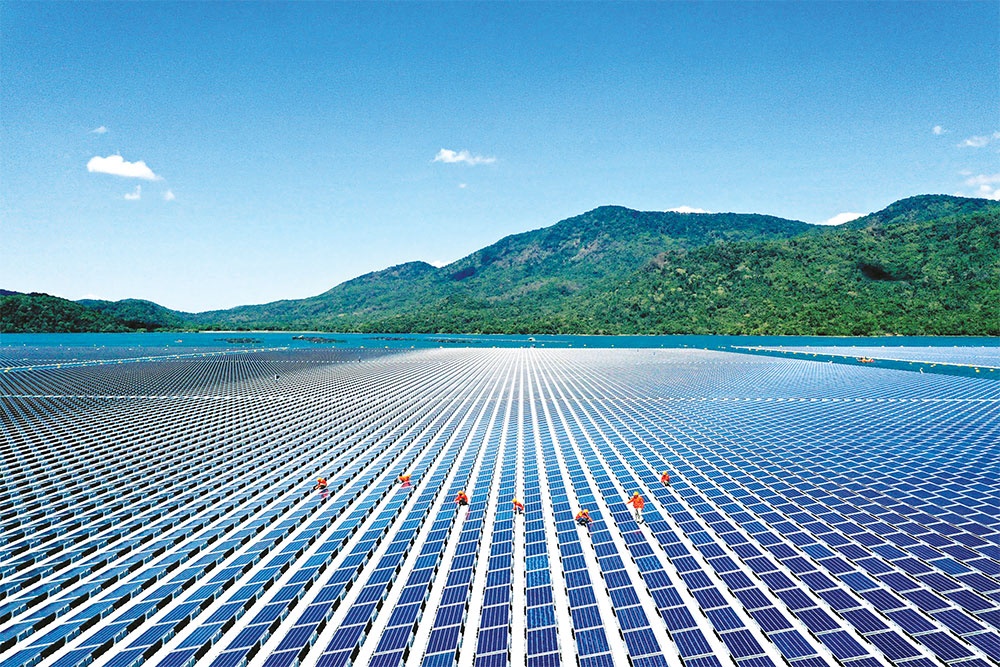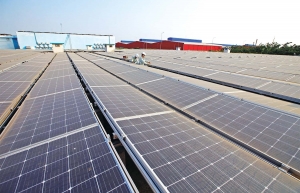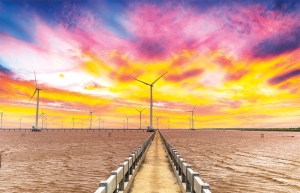Local-foreign tie-ups add to energy promise
GreenYellow Vietnam, a French renewable energy transition player, Last week announced it had acquired the Vietnamese subsidiary of Qair and its 70 per cent stake in a Binh Dinh solar farm with capacity of 49.5MWp in operation. The move is part of GreenYellow’s strategy to scout new investments that help diversify its business model in Vietnam’s solar energy area.
 |
| Local-foreign tie-ups add to energy promise |
The company expects the large-scale solar market to become complex in the next five years due to the fall in the proportion of new solar farms under the direct power purchase agreement (PPA) programme in Vietnam. However, the company is still betting on the segment to capitalise on new market opportunities beyond 2030.
Commenting on the commitment to the Vietnamese market, Sébastien Prioux, CEO of GreenYellow Vietnam and Cambodia, said, “Since the beginning, we have maintained our development strategy in Vietnam. With a view to being a long-term investor in the country, we aim to build a solid base of renewable energy assets for the next 20-25 years. Our mission is to become a leading energy service provider for all potential business-to-business customers.”
Vietnam is a very promising market for GreenYellow, Prioux added, and the depth of the market is large enough for the company to play a major role in the long run. “We will continue efforts to increase investment in Vietnam in the areas of private solar PPAs, solar farms, and energy efficiency,” he said.
Meanwhile, Japan’s Marubeni Corporation signed a MoU with Electricity of Vietnam on mutual collaboration towards the achievement of a decarbonised society. The two sides will jointly research a few of the decarbonisation projects including the development of renewable energy and sustainable green energy, such as biomass, ammonia, and hydrogen, as well as the decarbonisation or reduction of carbon emissions of existing thermal power plants in Vietnam.
Since the 1970s, Marubeni has built and operated 11 thermal projects in Vietnam. Based on the MoU, Marubeni will advance the decarbonisation of its corporate group, strengthen its green strategy, and commit to helping Vietnam achieve carbon neutrality.
Elsewhere, Singapore’s Leader Energy has acquired the Vinh Hao 6 solar power plant in the south-central province of Binh Thuan from FECON Power JSC, FECON Corporation, and ACWA Power. With capital of $53 million, the Vinh Hao 6 plant reached its commercial operation date in 2019.
Through the deal, Leader Energy is committed to expanding and growing its renewable energy portfolio in Vietnam and the Asia-Pacific region in general.
According to Stephanie Betant, head of Wholesale Banking at HSBC Vietnam, more than 90 per cent of foreign companies investing in solar and wind power in Vietnam are from Asian countries, such as Thailand, Japan, and the Philippines. More established Asian energy companies, like AC Energy from the Philippines, and Gulf Energy and B.Grimm Power of Thailand, have taken advantage of their resources to mobilise capital from multilateral development banks to support local renewable energy projects.
“It is very likely that local-foreign partnerships will dominate Vietnam’s offshore wind market as this takes shape. Given the potential complexities and sensitivities around offshore wind projects, major global offshore wind players have already cooperated with local development partners for their maiden projects in the country,” Betant said.
For example, Danish multinational Ørsted is partnering with Vietnam’s T&T Group to develop a 10GW offshore wind project covering Ninh Thuan and Binh Thuan provinces, Betant added.
In the draft Power Development Plan VIII, the Vietnamese government outlined plans to decarbonise production and prioritise renewables, aiming to ensure that power generation keeps pace with demand and facilitates future socioeconomic development. According to Thue Quist Thomasen, chairman of the Nordic Chamber of Commerce, Vietnam needs more foreign investment to meet its growing power consumption demands. However, the legal framework remains bureaucratic and burdensome. As such, further modernisation would help to attract more investment.
“Meanwhile, a move towards more market-based pricing would give investors a more predictable investment environment. Likewise, challenges remain in financing,” he said. “Therefore, addressing the issue of non-bankable PPAs and low feed-in tariffs would help to bring more foreign investors to the market.”
Thomasen also suggested that the government should promote more private-sector investment into power production. While the country is blessed with natural resources and renewable potential, infrastructure and storage could be improved.
“Therefore, the government could encourage more private-sector investment in infrastructure so as to facilitate the growth of renewables and accelerate the transition to a cleaner, greener, and more sustainable Vietnam,” he added.
 | Marubeni to foster investment in green energy projects Marubeni Corporation will foster its investment in renewable energy, biomass, and hydrogen project to support Vietnam in achieving decarbonisation. |
 | Vietnam capable of wind power windfall While wind power could offer endless opportunities, and new markets are emerging daily as more regions define their ambitions on marine energy, a policy gap in Vietnam continues to concern some players. |
What the stars mean:
★ Poor ★ ★ Promising ★★★ Good ★★★★ Very good ★★★★★ Exceptional
Related Contents
Latest News
More News
- Hermes joins Long Thanh cargo terminal development (February 04, 2026 | 15:59)
- SCG enhances production and distribution in Vietnam (February 04, 2026 | 08:00)
- UNIVACCO strengthens Asia expansion with Vietnam facility (February 03, 2026 | 08:00)
- Cai Mep Ha Port project wins approval with $1.95bn investment (February 02, 2026 | 16:17)
- Repositioning Vietnam in Asia’s manufacturing race (February 02, 2026 | 16:00)
- Manufacturing growth remains solid in early 2026 (February 02, 2026 | 15:28)
- Navigating venture capital trends across the continent (February 02, 2026 | 14:00)
- Motivations to achieve high growth (February 02, 2026 | 11:00)
- Capacity and regulations among British areas of expertise in IFCs (February 02, 2026 | 09:09)
- Transition underway in German investment across Vietnam (February 02, 2026 | 08:00)

 Tag:
Tag:




















 Mobile Version
Mobile Version